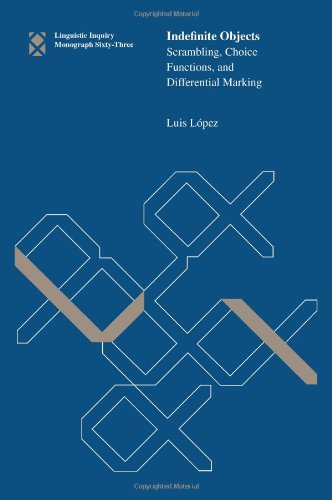

Most ebook files are in PDF format, so you can easily read them using various software such as Foxit Reader or directly on the Google Chrome browser.
Some ebook files are released by publishers in other formats such as .awz, .mobi, .epub, .fb2, etc. You may need to install specific software to read these formats on mobile/PC, such as Calibre.
Please read the tutorial at this link: https://ebookbell.com/faq
We offer FREE conversion to the popular formats you request; however, this may take some time. Therefore, right after payment, please email us, and we will try to provide the service as quickly as possible.
For some exceptional file formats or broken links (if any), please refrain from opening any disputes. Instead, email us first, and we will try to assist within a maximum of 6 hours.
EbookBell Team

4.4
102 reviewsIn Indefinite Objects, Luis López presents a novel approach to the syntax-semantics interface using indefinite noun phrases as a database. Traditional approaches map structural configurations to semantic interpretations directly; López links configuration to a mode of semantic composition, with the latter yielding the interpretation. The polyvalent behavior of indefinites has long been explored by linguists who have been interested in their syntax, semantics, and case morphology, and López's contribution can be seen as a synthesis of findings from several traditions. He argues, first, that scrambled indefinite objects are composed by means of Function Application preceded by Choice Function while objects in situ are composed by means of Restrict. This difference yields the different interpretive possibilities of indefinite objects. López's more nuanced approach to the syntax-semantics interface turns out to be rich in empirical consequences.
Second, he proposes that short scrambling also yields Differential Marking, provided that context conditions are fulfilled, while in situ objects remain unmarked. Thus, López contributes to the extensive literature on Differential Object Marking by showing that syntactic configuration is a crucial factor. López substantiates this approach with data from Spanish, Hindi-Urdu, Persian (Farsi), Kiswahili, Romanian, and German.